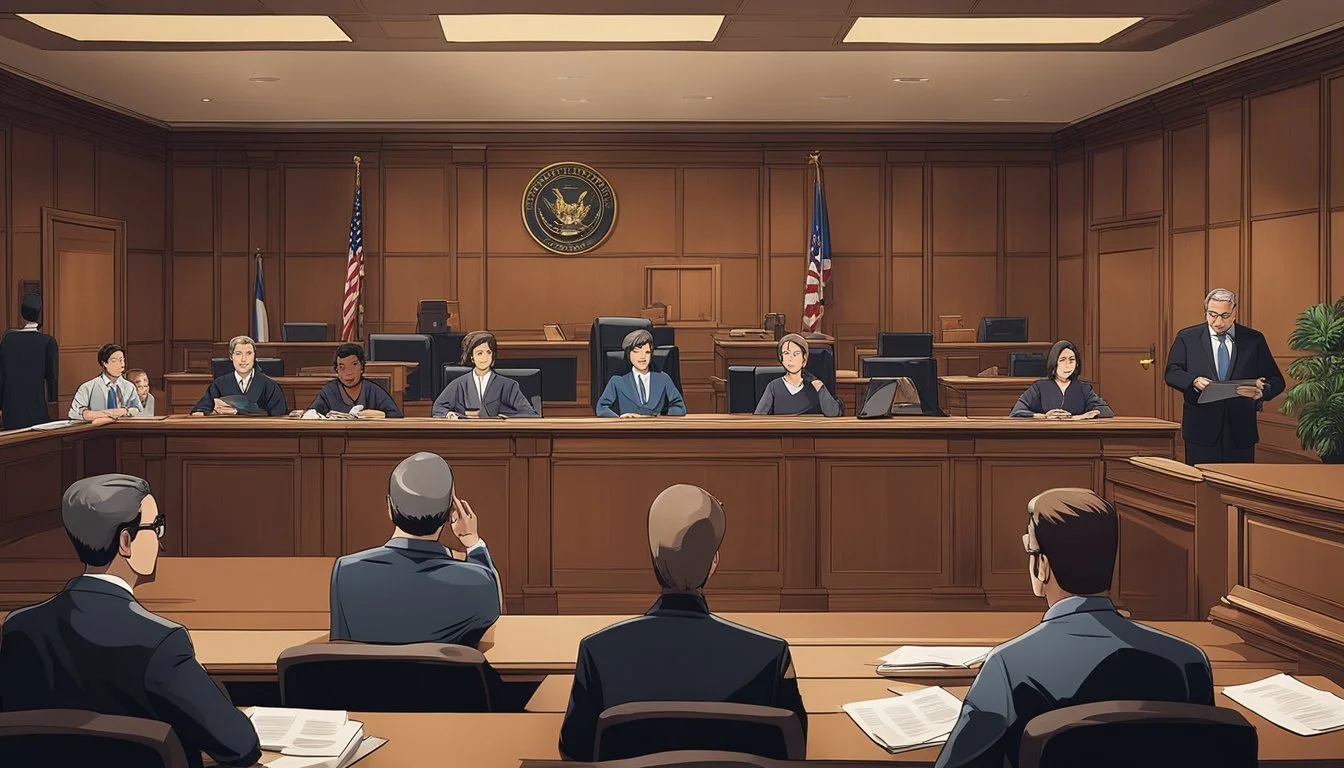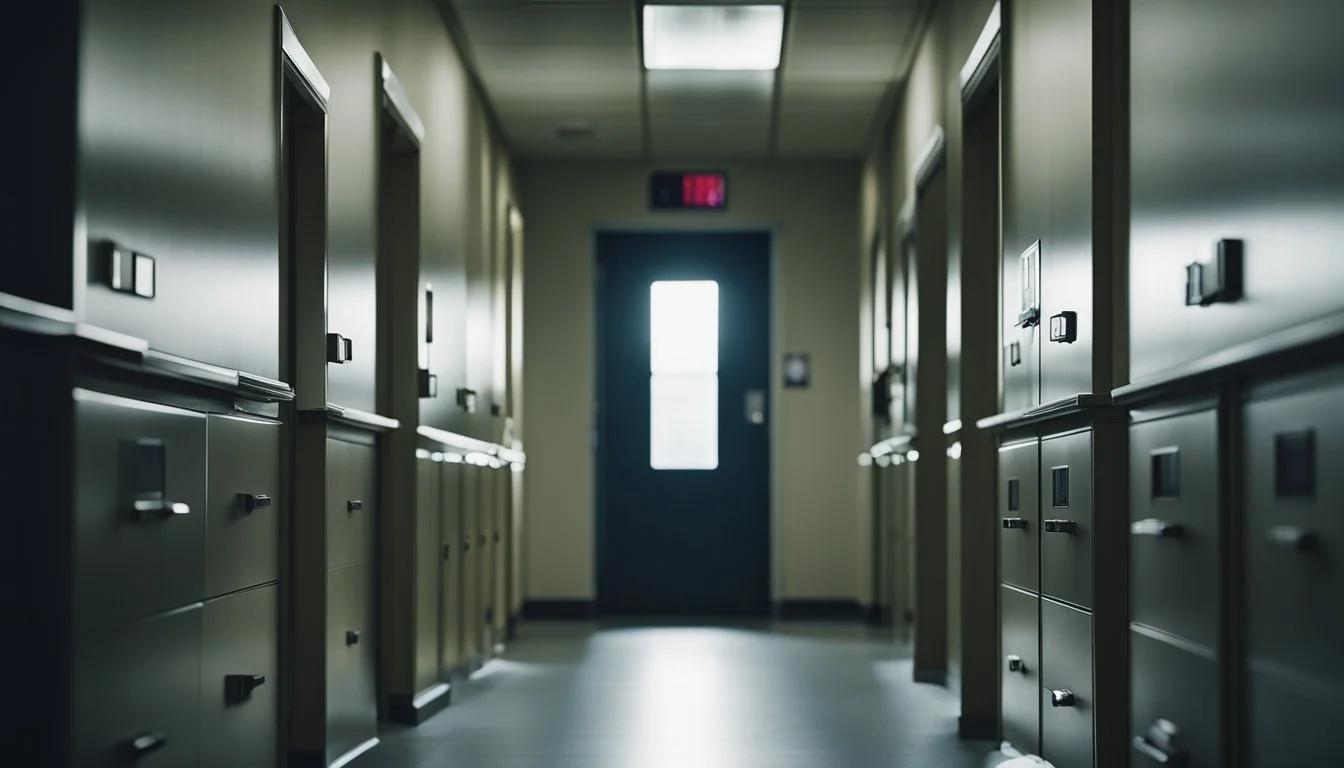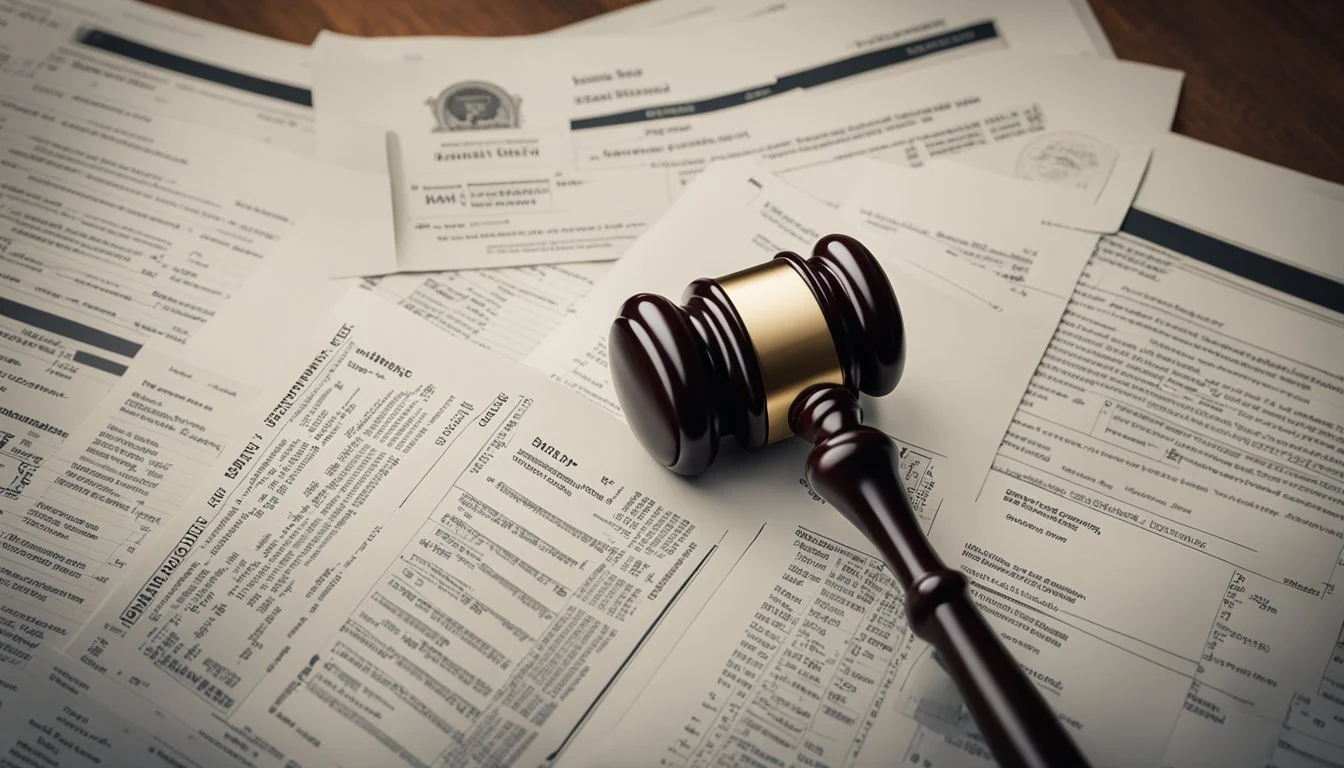5 True Crime Documentaries on Medical Fraud in Maryland
Gripping Cases and Shocking Realities
The intrigue surrounding medical fraud has captivated audiences through various true crime documentaries, shedding light on the darker side of the healthcare industry. Maryland, with its rich history and diverse population, provides a compelling backdrop for these stories.
Why do these true crime documentaries about medical fraud in Maryland matter to viewers? They expose the breaches in medical ethics and underscore the consequences of misconduct within the healthcare system. These documentaries not only reveal shocking realities but also serve as cautionary tales, emphasizing the importance of vigilance and accountability in medicine.
1) 'The Pharmacist' - Netflix (2020)
"The Pharmacist" is a gripping true crime documentary on Netflix that showcases the relentless efforts of Dan Schneider, a small-town pharmacist from Poydras, Louisiana. After his son is tragically killed in New Orleans, Dan embarks on a quest to find the murderer.
His journey soon uncovers a more significant issue. He exposes the widespread corruption and malpractice fueling the opioid crisis in the United States. His determination leads him to gather evidence that brings the criminal activities of doctors and pharmaceutical companies into the spotlight.
The series, produced by The Cinemart, consists of several episodes, each delving into different aspects of Dan’s investigation. His relentless pursuit of justice highlights the systemic failures in the healthcare system and the devastating impact of opioid addiction on communities.
For more information, see 'The Pharmacist' on Wikipedia.
2) 'The Bleeding Edge' - Netflix (2018)
The Bleeding Edge, a 2018 Netflix original documentary, focuses on the medical device industry. Directed by Kirby Dick and produced by Amy Ziering and Amy Herdy, it highlights the risks and flaws inherent in this $400 billion industry.
The film sheds light on the rapid development and deployment of medical devices. It reveals how the rush to innovate often leads to unforeseen consequences for patients. Real-life stories of individuals harmed by these devices are at the core of the film.
Particularly, The Bleeding Edge criticizes the regulatory systems overseeing medical device approval. The documentary argues that these systems are insufficiently protective of patient safety. It underlines the need for comprehensive reforms in the industry.
For more information on the film, visit Wikipedia.
3) 'Biggest Little Farm' - Hulu
'Biggest Little Farm' (2018) follows John and Molly Chester as they leave behind their urban life in Los Angeles to pursue a dream of developing a sustainable farm.
The documentary showcases their journey in creating Apricot Lane Farms, which operates in harmony with nature.
Viewers witness the trials and successes of their venture, highlighting the importance of dedication and ecological balance.
For more information about the film, visit the Wikipedia page.
4) 'Killer Inside: The Mind of Aaron Hernandez' - Netflix (2020)
"Killer Inside: The Mind of Aaron Hernandez" is a documentary series available on Netflix. This docuseries was released in 2020 and explores the life and crimes of Aaron Hernandez, a former NFL star turned convicted murderer.
The series consists of multiple episodes featuring interviews with friends, players, and insiders. It examines Hernandez's rise to fame in the NFL and his subsequent conviction for the murder of Odin Lloyd.
Viewers are also provided with insights into other aspects of Hernandez's life, including other criminal cases he was involved in. The documentary offers a detailed look at his complex personality and the factors that may have contributed to his downfall.
For more information, visit Wikipedia.
5) 'Dirty Money: Dr. King's Ransom' - Netflix (2020)
"Dirty Money: Dr. King's Ransom" is an episode in the Netflix investigative series, "Dirty Money."
This particular episode focuses on Dr. King's medical fraud scheme, revealing how the respected physician became entangled in deceptive practices.
Utilizing interviews, court documents, and firsthand accounts, the documentary delves into how Dr. King misused his position to commit fraud.
Viewers are taken through the intricacies of the scheme, including false billing and unnecessary medical procedures. These actions not only defrauded insurers but also compromised patient care.
The documentary highlights the broader implications of medical fraud, emphasizing the personal stories of those affected.
With gripping storytelling and thorough investigation, "Dr. King's Ransom" provides a clear view of the extent and impact of the fraud, showcasing the legal and ethical violations.
For more information, see IMDb.
Overview of Medical Fraud
Medical fraud involves the deliberate misrepresentation of information to gain unauthorized benefits within the healthcare industry. This illicit activity can take many forms and results in significant harm to individuals and the healthcare system itself.
Definition and Types of Medical Fraud
Medical fraud is any deceptive practice intended to result in improper financial gain from healthcare services. Common types include:
Billing for services not provided: Charging for procedures or services never performed.
Upcoding: Using billing codes that represent more expensive services than those actually provided.
Kickbacks: Payments made to doctors or clinics to encourage referrals.
Unnecessary procedures: Performing unwarranted medical interventions to increase profit.
False claims: Submitting inaccurate insurance claims.
This spectrum of practices exposes vulnerabilities in the healthcare system, from private practices to large institutions.
Consequences and Legal Ramifications
The consequences of medical fraud are severe and far-reaching. Patients may endure unnecessary medical procedures, misdiagnoses, and denied legitimate care due to the financial burden and resource diversion caused by fraud.
Legal ramifications include:
Criminal charges: Those found guilty can face heavy fines, restitution, and long prison sentences.
Loss of medical license: Healthcare providers involved in fraud risk losing their professional credentials.
Civil penalties: Offenders may also be subject to civil lawsuits and financial penalties.
These outcomes underscore the importance of rigorous monitoring and compliance within the medical profession to safeguard public trust and resource integrity.
Historical Cases of Medical Fraud in Maryland
Maryland has witnessed several alarming incidents of medical fraud, often involving highly respected professionals. These fraudulent activities have had profound impacts both on patients' lives and the state's healthcare system.
Notable Incidents and Perpetrators
One significant case involved Dr. Mark Midei, a cardiologist from Baltimore. He was accused of performing unnecessary stent procedures on over 500 patients. An investigation revealed that many of these patients did not require stents, leading to significant health risks and financial burdens.
Another case is that of Dr. Michael Swango, who briefly worked at the University of Maryland Medical Center. Swango was known for falsifying records and administering lethal injections to patients. His actions have caused the deaths of at least 60 people, making him one of the most notorious medical fraudsters in history.
In recent years, Dr. Bradley Schwartz, an ophthalmologist, was convicted of billing for services he never provided. This fraudulent billing amounted to millions of dollars in false claims, defrauding both patients and insurance companies.
Impact on Patients and Healthcare System
The actions of fraudulent medical practitioners have led to severe consequences for patients. Those subjected to unnecessary procedures, like many of Dr. Midei's stent patients, faced risks of complications, long-term health issues, and emotional distress.
Financially, such fraud increases healthcare costs. Insurance companies often pass these costs onto consumers, leading to higher premiums. Additionally, these incidents erode trust in the medical community, making patients skeptical about their treatments.
Healthcare institutions face significant reputational damage as well. Hospitals and clinics associated with fraudulent practitioners often undergo rigorous audits and scrutiny, diverting resources from patient care to regulatory compliance. This not only impacts the availability of medical services but also the overall quality of care provided to the community.
Investigative Techniques Used in True Crime Documentaries
True crime documentaries on medical fraud in Maryland utilize various investigative techniques to uncover the truth and present a compelling narrative. These techniques ensure thorough and credible storytelling.
Forensic Accounting
Forensic accounting plays a crucial role in uncovering medical fraud. Investigators analyze financial records, looking for irregularities that suggest fraudulent activities. This includes scrutinizing billing practices, payment records, and any unexplained financial transactions.
Experts often use specialized software to detect patterns and anomalies within the financial data. By examining these financial discrepancies, investigators can determine the extent and nature of the fraud, leading to crucial evidence that supports legal actions and documentary storytelling.
Interviews and Testimonies
Interviews and testimonies are fundamental to true crime documentaries. Producers interview victims, whistleblowers, law enforcement officials, and medical professionals to piece together the narrative. These firsthand accounts provide invaluable insights into the methods and impacts of the fraudulent activities.
Testimonies from experts in medical and legal fields also add credibility and depth to the investigation. By including different perspectives, documentaries can present a balanced and comprehensive view of the case, highlighting both the personal and systemic implications of the fraud.
Use of Surveillance Footage
Surveillance footage is a powerful tool in revealing fraudulent behaviors and corroborating other evidence. Documentaries often feature video recordings from medical facilities, capturing suspicious activities and interactions.
Footage can show unauthorized access to patient records, the manipulation of medical equipment, or dubious handling of pharmaceuticals. Such visual evidence is compelling and helps viewers understand the gravity and reality of the fraud.
By showcasing actual events, surveillance footage strengthens the narrative and supports the findings of interviews and forensic accounting.








